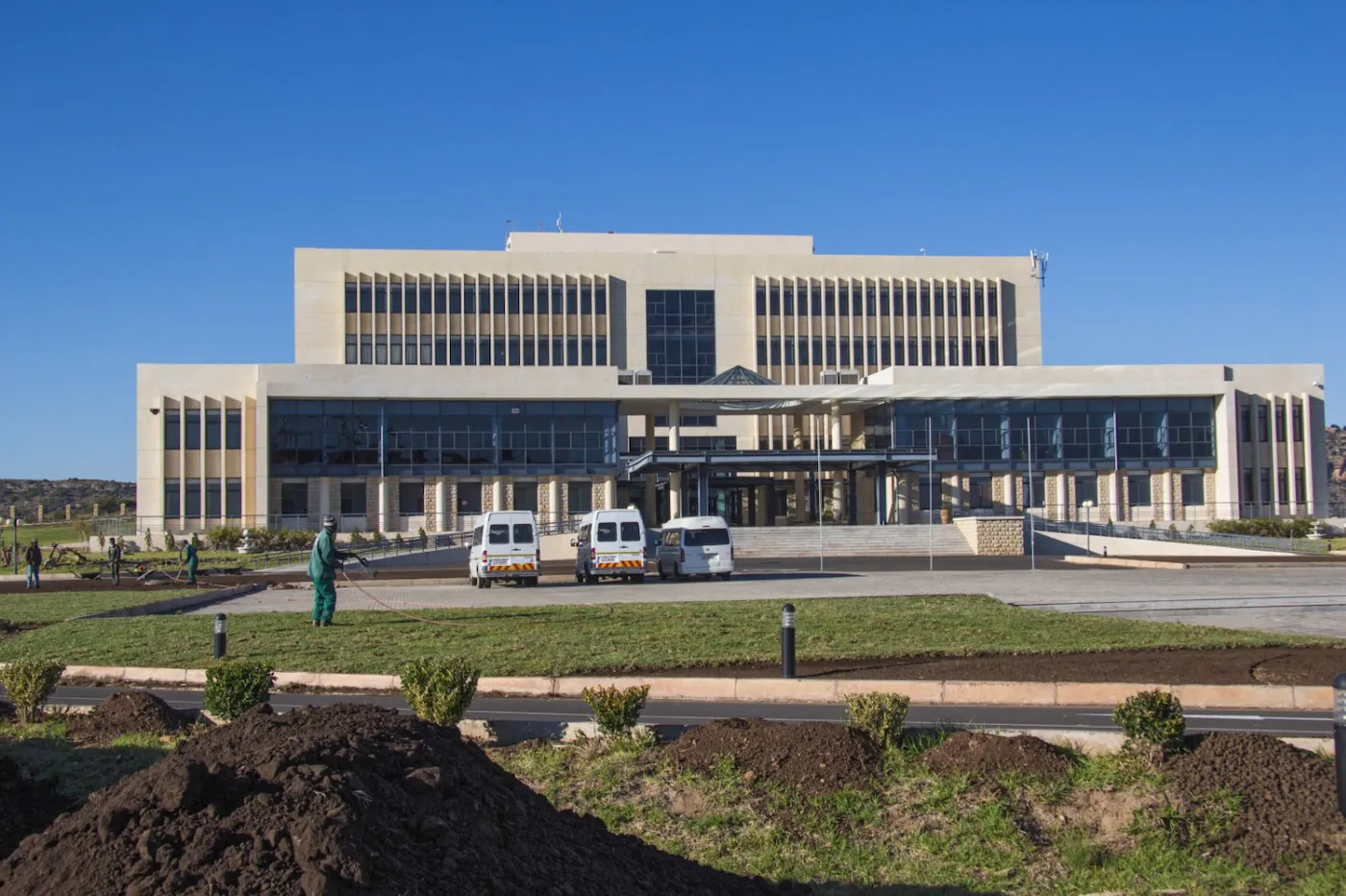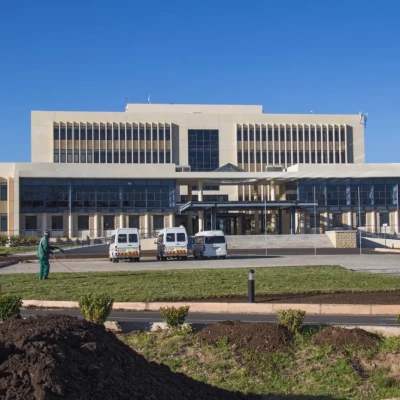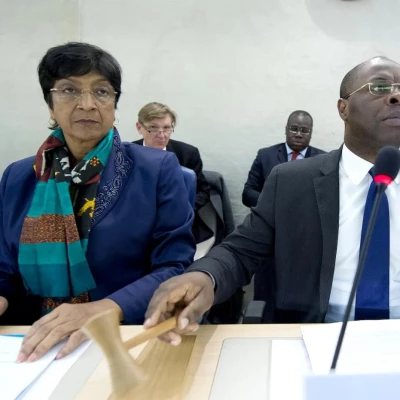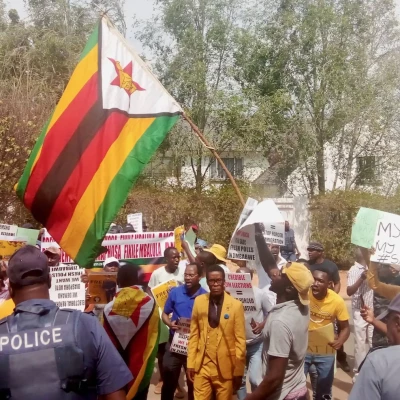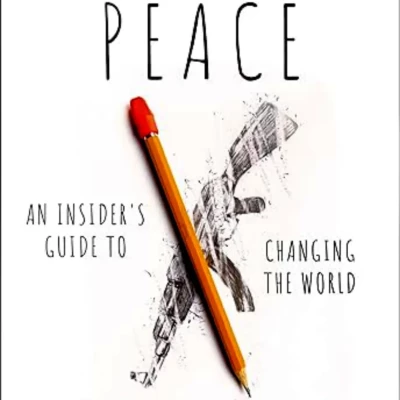Introduction
The article notes that the motion of no confidence in the Prime Minister (PM) in Lesotho is provided for in the Constitution, but different political leaders have abused it on several occasions for various party political and subjective reasons. This article, therefore, explores the abuse of this provision, its triggers, and how they have impacted the political stability and socioeconomic situation in the country. Lesotho is a constitutional democracy governed by a constitution adopted in 1993. One of the provisions of this Constitution is Section 87,1Government of Lesotho (1993) Constitution of Lesotho. Maseru: Government of Lesotho. which deals with a ‘motion of no confidence’. Constitutionally, the government must, at all times, enjoy the confidence of the National Assembly, and Section 87(2) of the Constitution embodies the principle that:
The King shall appoint as Prime Minister the member of the National Assembly who appears to the Council of State to be the leader of the political party or coalition of political parties that will command the support of a majority of the members of the National Assembly.2Kapa, M.A. and Shale V. (2014) ‘Alliances, Coalitions and the Political System in Lesotho, 2007–2012’, Journal of Africa Elections, 13(1), 93–114.
Similarly, the Constitution gives Parliament the power to withdraw confidence from the government of the day. The passing of the motion of no confidence requires a simple majority, and any member of Parliament can propose it.3Government of Lesotho (1993) op. cit., Section 83 read with Section 87. The only precondition for a motion of no confidence in government is the name of a member of the National Assembly for the King to appoint in place of the PM.4Nyane, H. (2021) ‘A Note on the Ninth Amendment to the Constitution of Lesotho’, PER/PELJ, 24, 1–26.
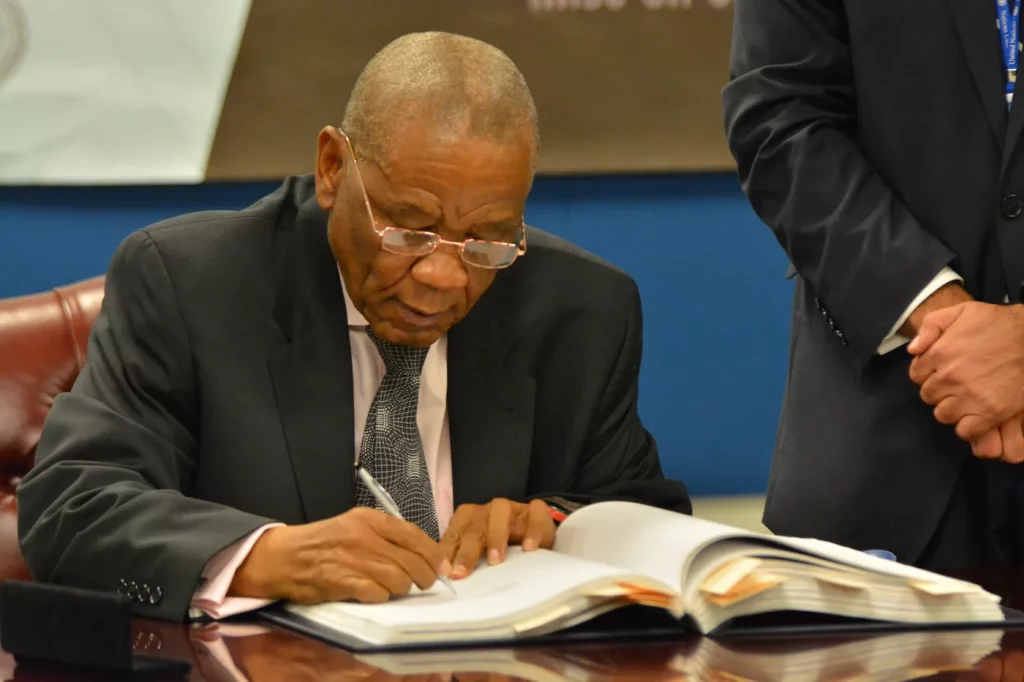
Photo: Control Arms.
Triggers of a motion of no confidence in Lesotho
There are numerous triggers for the use of the motion of no confidence in Lesotho. First, there is the exploitation of a constitutional loophole. The Constitution does not prescribe an acceptable time period between when a motion has been made and when it should then be on the table in Parliament; instead, it stipulates that it could be tabled at any time. Even after the formation of the new Parliament, it could still be proposed, as there is nothing preventing it. Second, it has often been used to settle political scores and power struggles within political parties. Trends have shown that as far back as 1997, a power struggle emerged within the Basotho Congress Party (BCP) leadership between Ntsu Mokhehle and Molapo Qhobela within the National Executive Committee (NEC). The NEC had lost confidence in Mokhehle’s leadership of the party, and instead of resolving matters, the Qhobela factions insisted on a motion of no confidence. Subsequently, Mokhehle resigned from the party, formed the Lesotho Congress for Democracy (LCD), and transferred power with it. The BCP then became an opposition party.5Nyane, H. (2018) ‘The crisis of constitutionalism in Lesotho’, The Post, 26 January, Available at: <https://www.thepost.co.ls/insight/the-crisis-of-constitutionalism-in-lesotho> [Accessed: 13 November 2023]. In this instance, Mokhehle usurped power for fear of losing it through a motion of no confidence. The usurping of power and formation of new political parties when leadership differed on fundamental issues resulted in many political splits in the country. This showed that many political parties in Lesotho lacked conflict resolution mechanisms.
In July 2019, the All Basotho Convention (ABC) also passed a motion of no confidence in its leader and former PM Thomas Thabane. This motion was a culmination of a protracted war of attrition between the outgoing and incoming NECs of the ABC. It was tabled by a member of the party and seconded by Democratic Congress (DC) deputy leader Motlalentoa Letsosa. There were different views on whether it was permissible for a member of the same party to table a motion of no confidence against their own leader in Parliament. On 6 August 2019, the former Attorney General, H. Phoofolo, indicated that a no-confidence motion against Thabane was valid.6Pherudi, M. (2021) ‘Tracing Reasons for Collapse of Coalition Governments in Lesotho, 2012-2020’, In Nyane, H. and Motlamelle, K. (Eds), Coalition Politics in Lesotho: A Multi-disciplinary Study of Coalitions and their Implications for Governance. Stellenbosch: African Sun Media, p. 210; Lesotho Government (2019) Legal opinion on motion of no confidence tabled by Honourable Koma before the National Assembly. Ref: Law/NA/1, 6 August, pp. 1–2. However, Thabane was saved by the former Speaker of Parliament, Sephiri Motanyane, who ruled that the motion was inadmissible. As pressure mounted for Thabane to resign, he finally did so in May 2020, avoiding a vote of no confidence. Accordingly, Thabane left with his political integrity intact.
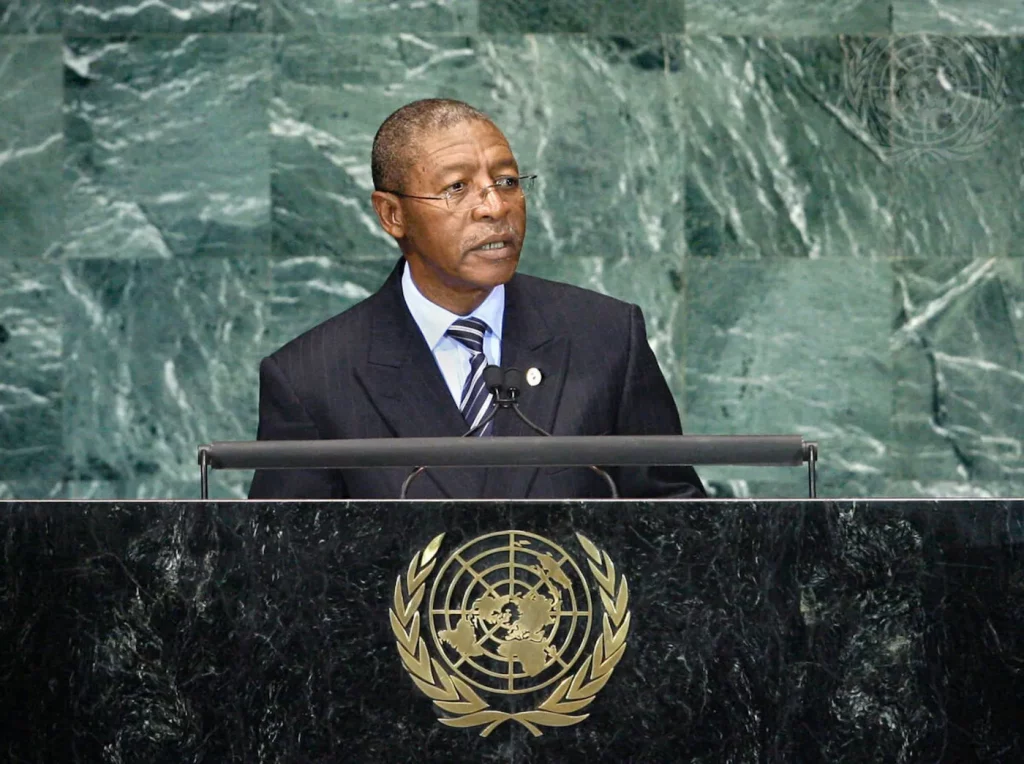
Third, the advent of coalition politics in the aftermath of the inconclusive 2012 elections brought with it fresh challenges to constitutionalism in Lesotho. After the 2012 elections, the first coalition government comprising three political parties, the ABC, Basotho National Party (BNP) and LCD, was formed. In less than two years in office, the relations between the then PM Thabane and his Deputy Metsing broke down due to a power struggle and allegations of a lack of consultation on the part of Thabane. The coalition partners also contested for seats, and where they differed, they undermined each other to the extent of tabling a motion of no confidence in the leader of the coalition.
In May 2014, two members of Parliament from the ABC defected from government, resulting in the ABC losing its majority. Constitutionally, when a party loses the majority, it does not automatically lose power. The opposition, therefore, sponsored a motion of no confidence in the government. Since the government had lost the majority in the National Assembly, prospects for the success of the motion were very high. The motion proposed that former PM Pakalitha Mosisili form a new government. The LCD also supported a motion of no confidence, as it irreconcilably differed from Thabane on many issues.
After the 2017 snap elections, Thabane formed a new coalition government comprising the ABC, Alliance of Democrats (AD), BNP and Reformed Congress of Lesotho (RCL). After a while, his party, the ABC, lost confidence in him due to infighting. Some among the opposition exploited the weaknesses of the ABC and pushed for Thabane’s ouster. When Thabane was threatened with a vote of no confidence, he suspended Parliament from 19 March to 19 June 2020,7Mahlakeng, M.K. (2016) ‘Lesotho: Dilemmas of a coalition system of governance’, Southern African Peace and Security, Available at: <https://bit.ly/3rTeUg7> [Accessed: 20 January 2021]. in terms of Section 83 of the Constitution. This section empowers the King to suspend Parliament on the advice of the PM.
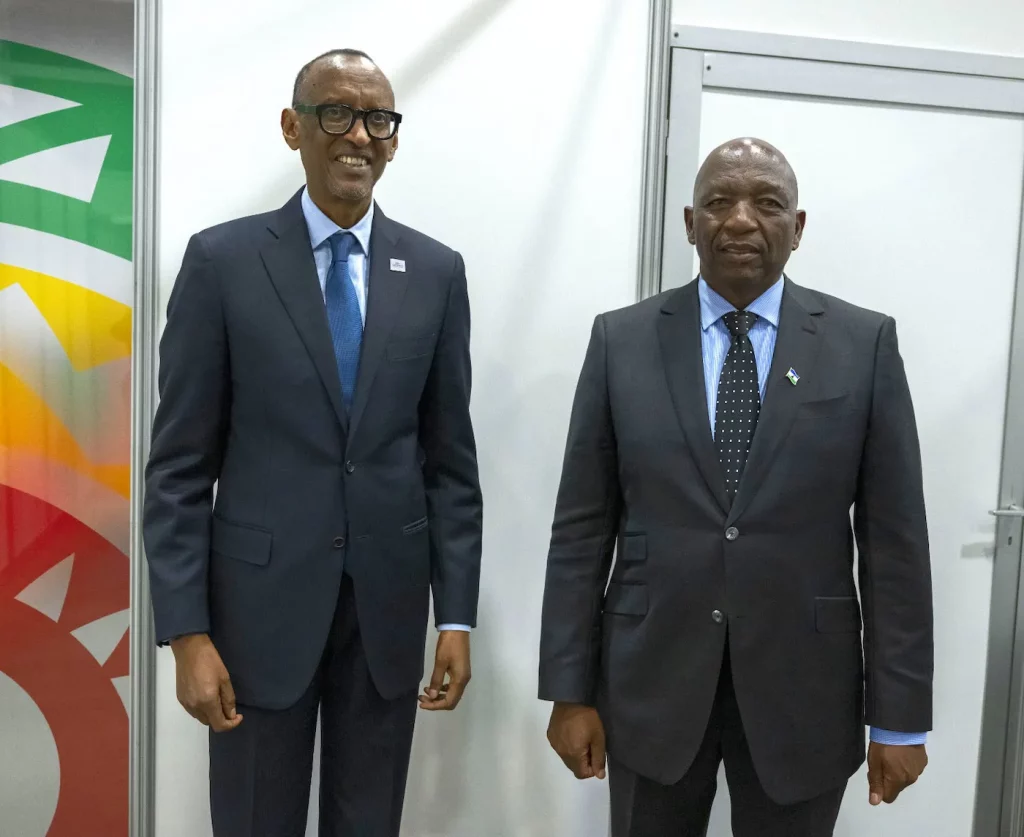
Photo: Paul Kagame Flickr.
The fourth reason is power struggles. This was evident during the 2015 elections, when the opposition combined their efforts under the banner of an anti-Mosisili campaign and succeeded in dislodging the PM through the motion of no confidence on 1 March 2017. Consequently, Mosisili advised His Majesty King Letsie III to dissolve Parliament.8Legal Notice No. 22 of 2017. Snap elections were held in 2017, which Mosisili also lost. Mosisili’s attitude was driven by a desire to hold on to power, and this resonated with the view of retired Major General Lekhanya that the main cause of political crisis in Lesotho is that every political leader wants power.9Pherudi, M. (2019) ‘A short history of plots, more plots and counterplots’, The Journal of Good Governance Africa, 51, 98–102. Lekhanya himself did not want to lose power until he was ousted through a coup in 1991. Fifth, personal differences between the politicians have been a trigger for the use of the motion. In August 2021, former PM Moeketsi Majoro disagreed with some members of his ABC party, and Tefo Mapasela led a motion of no confidence against Majoro. When Mapasela did not succeed, he resigned from the ABC and formed the Basotho Patriotic Party (BPP).10Mpaki, B. (2021) ‘Mapasela pushes for Majoro outer’, Lesotho Times, 9-15 September, p. 2. Mapasela wanted Majoro removed because he felt overlooked in ministerial appointments.
The last national elections were in October 2022, and Sam Matekane emerged victorious. He became PM and formed a coalition government comprising the Revolution for Prosperity (RFP), AD and Movement for Economic Change (MEC). Hardly a year in the office, on 16 October 2023, a motion of no confidence was tabled against Matekane by Machesetsa Mofomobe, leader of the BNP, and it was proposed M. Mokhothu, leader of the DC. The motion was seconded by Mootsi Lehata, MP for the Makhaleng constituency. The motion was delayed because of the court petition by RFP parliamentarian Lejone Puseletso. He questioned the constitutionality of the motion and asked the Constitutional Court to stop it from being introduced in Parliament until after the completion of the national reforms process. Puseletso pleaded that the passing of the no-confidence motion ‘be deferred pending the conclusion of the reforms process in terms of which the Parliament shall promulgate the comprehensive provisions to regulate the passing of [the] vote of confidence.’11Lesotho Times (2023) ‘No confidence motion against PM on hold’, 16 October, p. 1.
At the time of the suspension of the motion of no confidence, the opposition had a majority of 64 members and was in a position to topple the government. At the time, the Speaker of Parliament, Tlohang Sekhamare, could not proceed with the motion as there was a pending court petition. In response to the imminent ousting through a motion of no confidence, Matekane wrote a letter to the Southern African Development Community (SADC), in particular the Chair of the Organ on Politics, Defence and Security Cooperation (OPDSC), President Hichilema of Zambia, asking for his intervention. In his letter, among others, Matekane highlighted that: ‘The motion of no confidence was motivated by greed, selfishness and the desire to subvert democratic norms and principles […] with little or no regard for “The Lesotho We want.”’12Letter from PM Samuel Ntsokoane Matekane (2023) Office of the Prime Minister, Kingdom of Lesotho. FR/CL/CTR/51, 20 October, pp. 1–2.
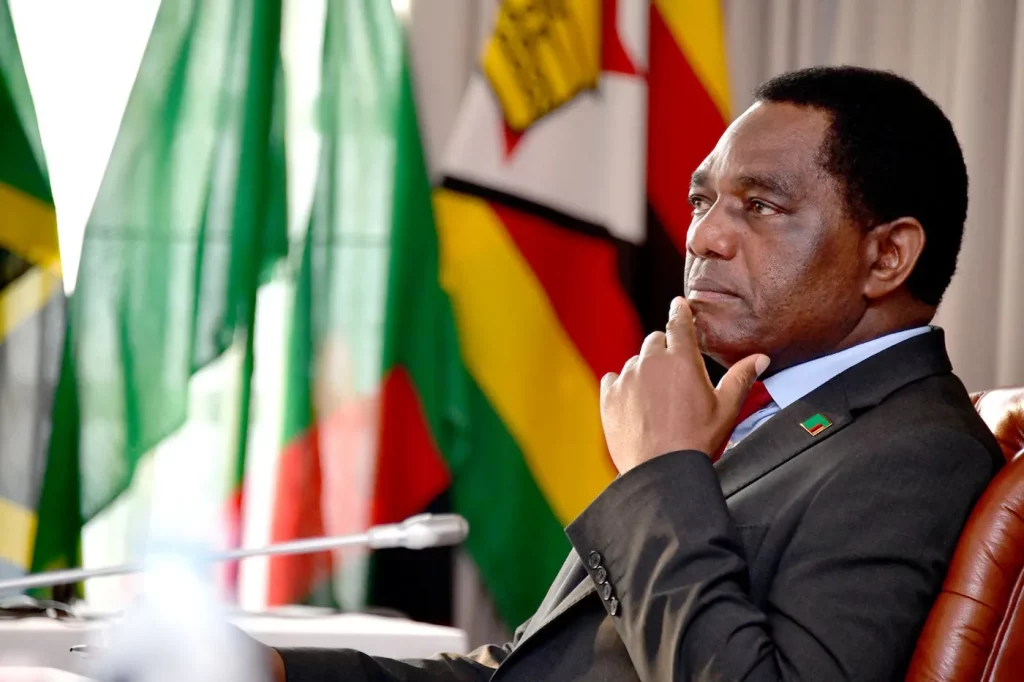
Though some MPs made several allegations, including a lack of progress on the reforms against Matekane, they could not substantiate their call for such a motion. However, it became evident that some members from within the RFP were disgruntled and mobilised the support of others to oust Matekane. Like all his predecessors who asked for SADC support, Matekane followed in their footsteps. This was in line with Weisfelder’s observation that: ‘Lesotho’s past and present leaders have, at one point or the other, denounced the SADC […]. Nevertheless, the same leaders have not hesitated to call for assistance when their own power [has] been threatened.’13Weisfelder, R. (2015) ‘Free Elections and political instability in Lesotho’, Journal of African Elections, 14(2), 50–80.
Matekane’s government survived a motion of no confidence due to several reasons. First, the RFP made relentless efforts to lobby some opposition parties to join a newly formed coalition to bolster numbers and forestall the no-confidence motion in Parliament. Consequently, the Basotho Action Party (BAP) contributed six seats and other small parties a seat each, which gave Matekane a majority of 67 seats against the 62 seats of the opposition. Second, a public statement was made by heads of security agencies (the Lesotho Defence Force (LDF), Lesotho Mounted Police Services (LMPS), and National Security Service (NSS)) declaring that a motion of no confidence would not be tolerated. Third, the SADC intervened through the Panel of Elders (PoE), headed by former President Kikwete and Hichelema, the Chair of the OPDSC, which visited Lesotho on 2 November 2023 and engaged with various stakeholders on the implications and repercussions of the vote of no confidence. The PoE seemed to have found common ground with all the stakeholders. Only time will tell whether the Basotho politicians will keep their commitment to the SADC leadership, as they have defied it on several previous occasions. Sixth, there were delays in finalising the draft reforms. During the 43rd SADC Summit held in Luanda, Angola, Matekane’s government committed to accelerate the finalisation of the draft reforms.14SADC (2023) Communique of the 43rd Ordinary Summit of SADC Heads of State and Government, Angola, 17 August, p. 2. This commitment did not sit well with the opposition, as some were opposed to the finalisation of the process. The attitude of some of the politicians confirms an observation by former South African High Commissioner to Lesotho that ‘Lesotho politicians do not want the reforms,’15Moloto, Sello (2021) Interview with the author on 6 May, Tshwane, South Africa. as they threaten their individual interests and political greed.
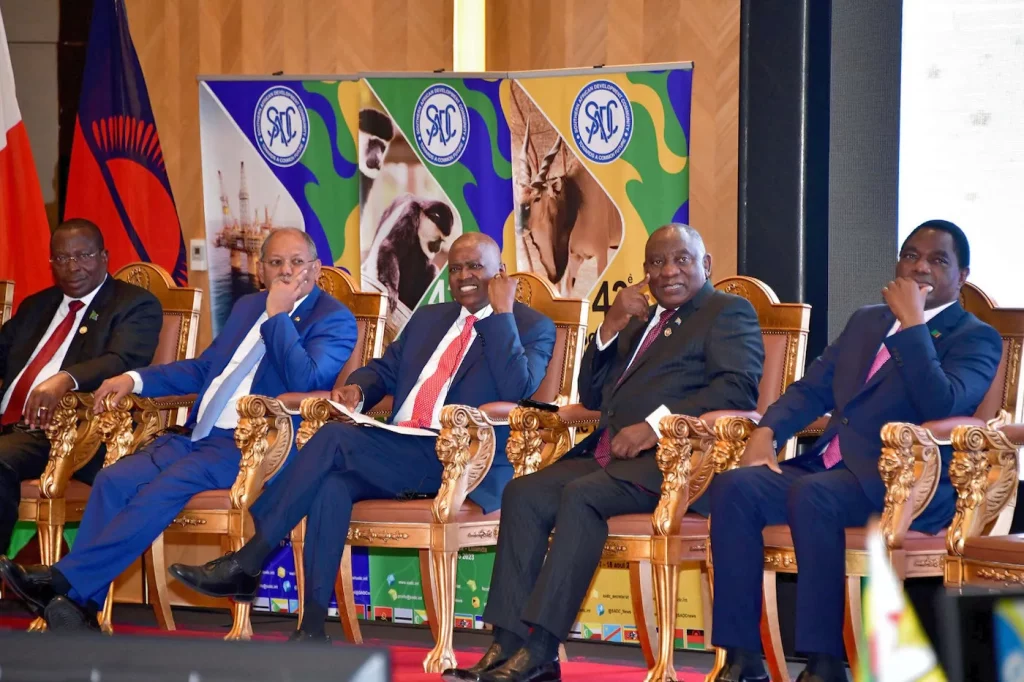
Efforts to redress the abuse of vote of no confidence
In efforts to redress the challenges associated with the vote of no confidence, in October 2019, the National Assembly adopted a motion to amend the Constitution to regulate the powers of the PM in the event of a successful motion of no confidence against the PM. At the time, the prevailing mood among the members of Parliament and the public at large was that the motion would stabilise Parliament and save the country the expenditure for the now regular snap elections.16Nyane (2021), op. cit., pp.3–4. The amendment bill was assented to by the King in May 2020, and the Senate signed it into law on 28 April 2021 after adoption and approval.17Mohloboli, M. (2020) ‘Lesotho’s king assents to bill limiting PM Thabane’s powers’, Available at: <https://www.nasdaq.com/articles/lesothos-king-assents-to-bill-limiting-pm-thabanes-powers-2020-05-07> [Accessed: 11 November 2023]. After the adoption of the ‘Ninth Amendment to the Constitution of Lesotho’, the PM could no longer advise the King to dissolve Parliament after losing the confidence of the National Assembly. It gave the PM two options: either resign within three days or advise the King to dissolve Parliament.18Pherudi (2021), op. cit., p. 215. In fact, the Ninth Amendment stated: ‘The Prime Minister shall not advise dissolution under this section, unless the dissolution is supported by a resolution of a two-third[s] majority of the members of the National Assembly.’19Government of Lesotho (2020) Ninth Amendment to the Constitution Act, 2020, pp. 371–372. The amendment required collective responsibility among the two-thirds majority, as the PM could not escape the vote of no confidence by dissolving Parliament and going for snap elections.
The security agencies also jumped onto the bandwagon of the motion of no confidence. The three heads of the agencies, including Lieutenant General Letsoela, Commander of the LDF; Ralenkoane, Director General of the NSS; and Commissioner Molibeli of the LMPS, issued a joint statement on 16 October 2023 that they would defend the government of Matekane against a motion to unseat it by the opposition. They also said: ‘Lesotho would not relapse into a political instability and that those actions of change of government will not happen.’20Ndebele, L. (2023) ‘Lesotho’s military warns opposition not to go ahead with no confidence in PM’, Available at: <http://www.news24.com/news24/Africa/news/lesothos-military-warns-opposition-not-go-ahead-with-no-confidence-motion-in-pm-20231017> [Accessed: 15 November 2023]. This public announcement was interpreted as a coup from certain quarters. Interestingly, so far, Matekane has not expressed himself on the public pronouncement of the security heads.
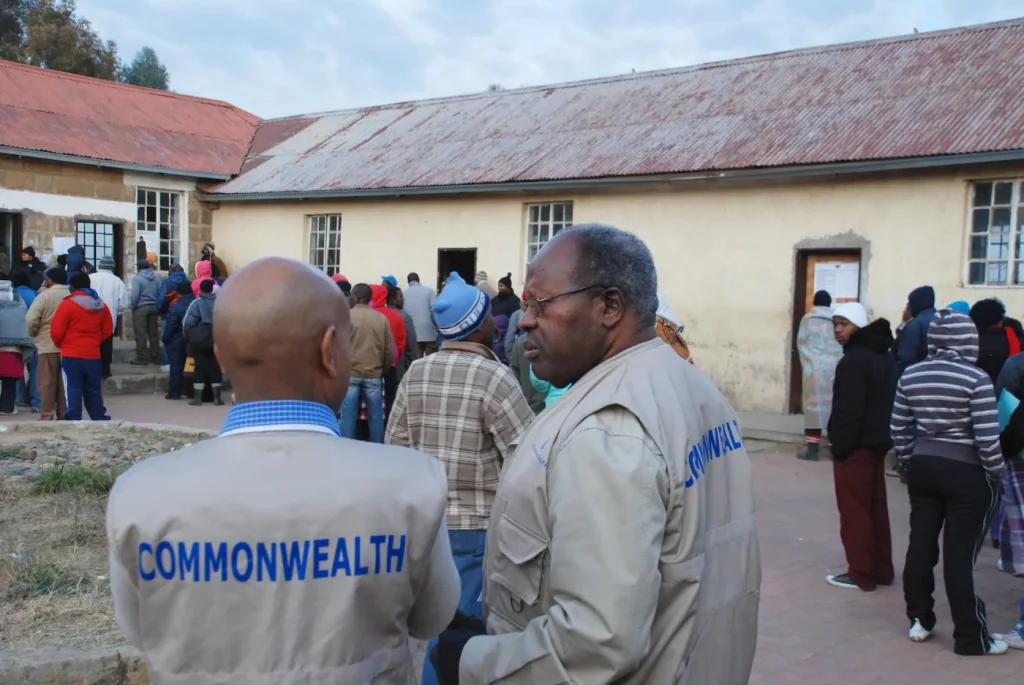
Impact of a motion of no confidence
The motion of no confidence impacted the country’s sociopolitical and economic stability. The country has gone through three snap elections between 2012 and 2017 because two PMs feared and lost the motion, respectively.21Nyane (2021) op. cit., pp. 5–6. These snap elections drained public financing.
A motion of no confidence is used as a tool to fight power struggles within the political parties, especially the ABC. Consequently, members of the ABC passed a motion of no confidence in their leader and collaborated with the opposition to oust him. Instead of facing the motion, he resigned as PM on 19 May 2020, and PM Majoro, who has survived three motions of no confidence, succeeded him. Two PMs, Thabane and Mosisili, did not finish their five-year tenure during the first and second coalition governments, respectively. Majoro survived the motion of no confidence because parties such as the BAP refused to support the ABC in this regard.
A motion of no confidence destabilises Parliament. However, since the adoption of the Ninth Amendment, the motion of no confidence and the resultant dissolution of Parliament have not been common features of Lesotho’s constitutional practice. Even on those rare occasions when the opposition raised a motion of no confidence in government, they have not succeeded.22Ibid, p. 7. Recently, in October 2023, the motion of no confidence did not succeed against Matekane’s government after receiving support from other political parties that gave him the majority of 67 seats against 64 of the opposition.23Matekane has brought the Basotho Action Party (BAP) into the coalition. The new coalition government comprised the BAP, RFP, AD, MEC, LCD, Baena and HOPE.
For the first time in the history of the country, the heads of security agencies denounced an intended motion of no confidence. Though the pronouncement saved the government, it set a negative precedent by undermining the apolitical nature of the security entities in the country. The past trends have had a negative impact on security agencies’ involvement in politics, resulting in torture, kidnappings and assassinations of those perceived to be the enemies of the previous governments. The assassinations of both Lieutenant General Mahao and Motsomotso in 2015 and 2017, respectively, by LDF members provide an example of its partisanship.24Pherudi, M. (2018) ‘The Assassination of the Military Commanders in Lesotho: Triggers and Reactions’, Southern Journal for Contemporary History, 43(2), 117–133.
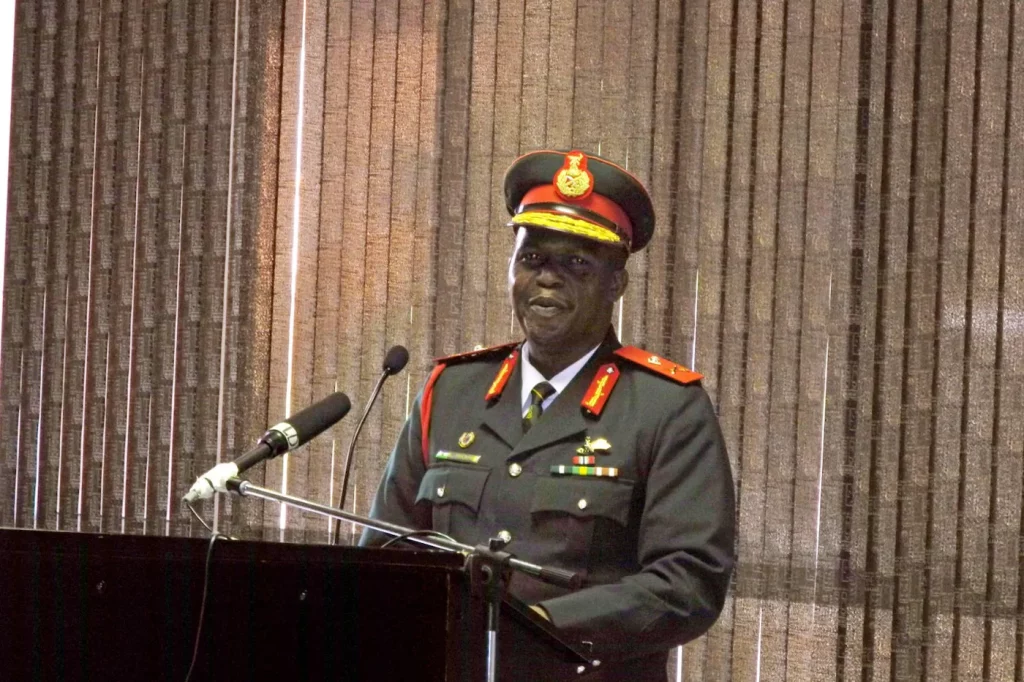
Conclusion
The article has demonstrated how politicians have abused the motion of no confidence and how the process has negatively affected governance and the prospects of economic growth and security in the country. In redressing the abuse of a motion of no confidence and renewing the country’s stability, among other things, it is important to determine the acceptable period between when a motion of no confidence is made and when it should subsequently be tabled in Parliament. It will also be important for Lesotho to conclude the process of the long-awaited reforms.
Dr Mokete Pherudi, is an independent researcher. His latest publication is ‘Lesotho on SADC Agenda: Challenges of instability and prospects for peace (2016–2022), (Ssali Publishing House, 2023), 1–479. He alsoserved in the SADC mediation processes in Lesotho, Madagascar, the Democratic Republic of the Congo and Zimbabwe. ORCID: <https://orcid.org/0000-0002-2291-7288>.

